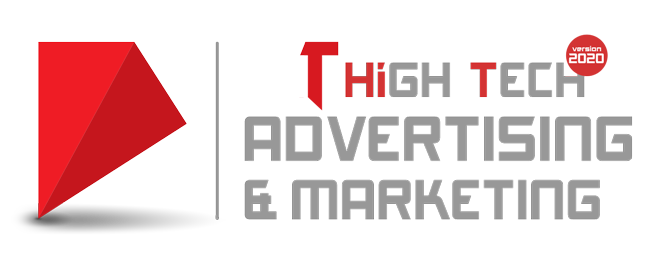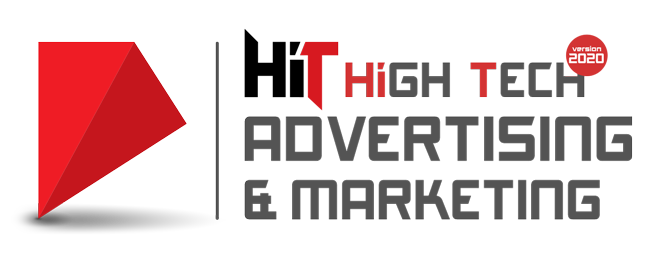Introduction to Social Media for Business
In the digital era’s tapestry, social media emerges as a vibrant thread, weaving together opportunities for businesses to engage with their audience. The Evolution of Social Media in Business has been nothing short of revolutionary.
From the nascent stages of online networking to the sophisticated marketing arenas of today, social media has burgeoned into a multi-faceted platform for customer interaction, brand promotion, and real-time communication.
[speaker-mute]Why Social Media is Indispensable for Businesses Today rests in its unparalleled reach and the intimate connections it fosters. These platforms serve as the modern-day agora, where businesses can not only speak but also listen, react, and adapt to the ever-changing consumer zeitgeist. In this digital agora, brands achieve visibility, communities coalesce around shared interests, and dialogues between customers and companies flourish.

Analyzing the Social Media Landscape
To navigate the social media terrain, a thorough Current Trends in Social Media analysis is imperative. In 2023, we observe several key movements shaping the way businesses approach these platforms:
- Content diversification: Brands are no longer relying on a single type of content but are employing a mix, from live streams to ephemeral stories and long-form content.
- Personalization: Social media algorithms continue to evolve, favoring content tailored to individual preferences, making personalized marketing more important than ever.
- Social commerce: With platforms integrating shopping features, the line between social media and e-commerce is increasingly blurred.
Understanding how to Choose the Right Platform for Your Business involves a cocktail of factors:
- Audience demographics: Know where your target audience spends their time.
- Content format: Align your content strategy with the strengths of each platform, whether it’s video, text, or images.
- Engagement level: Select platforms where user engagement aligns with your brand’s interaction style.
Platform Overviews
In social media, each platform offers unique advantages for businesses aiming to amplify their online presence.
Facebook: The Ubiquitous Network
Advertising on Facebook has transformed over the years. With advanced targeting options, businesses can reach specific demographics with precision.
- Custom audiences: Tailor ads based on user behavior and preferences.
- Lookalike audiences: Reach new people with interests similar to your existing customers.
Community Building and Engagement on Facebook are vital for brand loyalty.
- Groups: Create or join groups to interact with your niche market.
- Facebook Live: Engage with your audience in real time and foster a sense of immediacy.
Instagram: The Visual Marketplace
Leveraging Instagram Stories for Business allows for creative marketing strategies.
- Story Ads: Use this full-screen format to capture attention with compelling visuals and calls to action.
- Interactive elements: Polls, question stickers, and swipe-ups increase user interaction.
Instagram Shopping and Brand Showcasing are powerful tools for conversion.
- Shoppable posts: Tag products in your images and stories for direct purchases.
- Instagram Checkout: Simplify the buying process with in-app purchases.
LinkedIn: The Professional’s Hub
Networking and B2B Marketing on LinkedIn can be highly effective.
- Connection requests: Build your professional network by connecting with peers and industry leaders.
- InMail campaigns: Reach out directly to decision-makers with personalized messages.
LinkedIn Content Strategies for Thought Leadership help establish authority.
- Publishing articles: Share insights and industry analysis to showcase expertise.
- LinkedIn Learning: Create educational content to attract a professional audience.
X (formerly known as Twitter): The Real-time Information Network
Maximizing Brand Visibility on The X (Twitter) involves timely and relevant content.
- Hashtags: Use trending and branded hashtags to increase the discoverability of your tweets.
- Twitter Moments: Curate content around specific themes or events to engage your audience.
Customer Service and Feedback Loop on Twitter is crucial for reputation management.
- Direct messages: Offer support through private conversations.
- Feedback polls: Gain insights into customer preferences and experiences.
TikTok: The Viral Sensation
Creative Campaigns and TikTok Challenges drive user-generated content.
- Hashtag challenges: Encourage participation and virality with branded challenges.
- TikTok Ads: Utilize various ad formats to engage with a younger demographic.
Influencer Partnerships on TikTok leverage the clout of content creators.
- Collaborations: Partner with influencers to tap into their follower base.
- Duet and Stitch: Interact with users’ content to boost engagement.
Emerging Social Media Platforms: The Frontier of Digital Marketing
In the digital marketing sphere, it’s crucial to keep an eye on Emerging Platforms and Trends. For instance:
- Clubhouse: An audio-based networking app that is redefining influencer engagement.
- Discord: Once a gamer’s domain, now a space for communities around diverse interests.
- Twitch: Live streaming isn’t just for gamers anymore; it’s a space for real-time interaction across various content types.
To capitalize on these Emerging Platforms, businesses should:
- Engage with niche communities.
- Innovate in using new content formats like audio rooms or live streams.
- Collaborate with platform-specific influencers.

Effective Social Media Strategies for Businesses
Crafting an Effective Social Media Strategy is akin to constructing a bespoke suit – it must be tailored perfectly to fit your business’s brand and goals. Here’s how:
Content Planning and Scheduling
- Editorial Calendars: Organize your content to ensure a consistent posting schedule.
- Automation Tools: Use tools like Buffer or Hootsuite for efficient content management.
Data-Driven Decision Making
- Analytics: Harness the power of platform analytics to understand performance.
- A/B Testing: Experiment with different content types and timings to see what resonates best.
Community Management
- Engagement: Respond to comments and messages to build relationships with your audience.
- User-Generated Content: Encourage your followers to share their own content related to your brand.

Social Media Best Practices for Engagement
Best Practices for Engagement involve understanding the nuances of digital interactions.
Creating Compelling Content
- Craft stories that resonate with your audience’s values.
- Use high-quality visuals to capture attention.
- Implement interactive content like polls or quizzes to foster engagement.
Maintaining Brand Consistency
- Ensure your visual and tonal branding is cohesive across all platforms.
- Tailor your message to fit the platform while maintaining your brand’s core message.
Utilizing Social Media for Customer Service
- Rapid Response: Address customer inquiries and complaints swiftly.
- Proactive Communication: Update followers on new products, services, and company news.

Measuring Success on Social Media
Tracking and Measuring Social Media Success is paramount to understanding the ROI of your efforts.
Key Performance Indicators (KPIs)
- Engagement Rate: Measures likes, comments, and shares.
- Reach and Impressions: Gauges how far your content spreads.
- Conversion Rate: Tracks how many interactions lead to desired actions like sales or sign-ups.
Social Media Reporting
- Create regular reports to analyze performance.
- Adjust strategies based on data-driven insights.

The Future of Social Media Marketing
As we look towards the horizon, the future of Social Media Marketing beckons with opportunities ripe for the taking. Here’s what to anticipate:
- Augmented Reality (AR): Platforms are expected to integrate more AR features, providing immersive experiences for users.
- Ephemeral Content: Short-lived content, like stories, will continue to dominate, offering authentic glimpses into the life of a brand.
- Social Commerce: The blending of e-commerce and social platforms is set to streamline the shopping experience.
Businesses can stay ahead by:
- Investing in AR content creation.
- Embracing the transient nature of ephemeral content.
- Integrating shopping features into their social media profiles.
Adapting to Changes: Social Media Algorithm Updates
Social media is governed by ever-changing algorithms, and staying informed is not just necessary; it’s imperative for visibility and engagement. To adapt:
- Keep track of platform updates and adjust your content strategy accordingly.
- Focus on creating high-quality, engaging content that prompts user interaction.
- Use analytics to understand what type of content performs best and why.

Leveraging Influencer Partnerships
Influencer collaborations can catapult a brand’s reach and credibility. Businesses should:
- Identify influencers whose followers align with their target demographic.
- Foster genuine partnerships rather than one-off promotional deals.
- Measure the success of influencer campaigns to understand their impact.
Enhancing Personalization
Personalization in marketing is no longer a luxury—it’s an expectation. To enhance personalization:
- Utilize data analytics to deliver content that appeals to individual preferences.
- Segment your audience to tailor messaging.
- Engage in one-on-one conversations through DMs and personalized responses.
Investing in Social Media Training
With the digital landscape in constant flux, investing in Social Media Training for your team is invaluable. This can involve:
- Workshops and webinars on the latest social media trends.
- Training in analytics and data interpretation.
- Creativity and content creation sessions.
Conclusion: Navigating the Social Media Maze
In conclusion, as we traverse the ever-evolving social media landscape, it is clear that no one-size-fits-all solution exists. The Best Social Media Platforms for Businesses in 2023 are those that align with your audience, content strategy, and engagement style. By staying abreast of trends, engaging with your community, and analyzing your data, you can chart a course to digital marketing success.
As HiT | High Tech Business Solutions at Hit.land, we stand ready to partner with you on this journey, offering professional advertising, business, and marketing solutions tailored to the digital age. Connect with us to amplify your brand’s voice and presence across the best social media platforms for your business.
FAQs
Which social media platform has the highest ROI for businesses?
The platform with the highest ROI can vary based on industry and target audience, but Facebook and Instagram often lead due to their vast user bases and advanced targeting options.
How often should a business post on social media?
It depends on the platform and your audience, but consistency is key. Creating a content calendar can help maintain an optimal posting schedule.
Is paid advertising on social media worth it?
Yes, paid advertising can be highly effective when targeted correctly, allowing businesses to reach a larger or more specific audience.
How can a business measure social media success?
Success can be measured using various KPIs like engagement rate, reach, impressions, and conversion rates, depending on business goals.
Can small businesses compete with larger ones on social media?
Absolutely, social media levels the playing field, allowing small businesses to showcase their unique brand stories and connect with audiences just as effectively as larger companies.
As you embark on this odyssey, remember that HiT | High Tech Business Solutions is here to guide you with tailored advertising, business, and marketing solutions. With our expertise, we can help you navigate through the complexities of social media marketing and ensure your brand not only stands out but thrives in this digital era.
Visit us at Hit.land to explore how we can elevate your business’s social media presence and drive meaningful engagement with your audience. Your social media success story starts with us.








